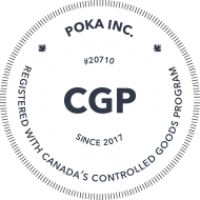
It's All About Trust
Security & Compliance
We work hard to earn your trust, and even harder to keep it
At Poka, we recognize that our customers entrust us with one of their most valuable assets, their organizational and operational knowledge. That is why security is not an afterthought, it's baked into our DNA.
Compliance








Contact Us
Still Have Questions?
E-mail
Contact Poka's InfoSec
Any lingering questions about our Privacy, Security and Compliance policies? Send us an e-mail!
Encryption
PGP Key
If the content of your communication is sensitive, please encrypt your email using our PGP key.